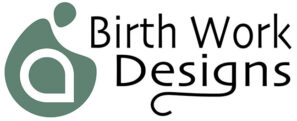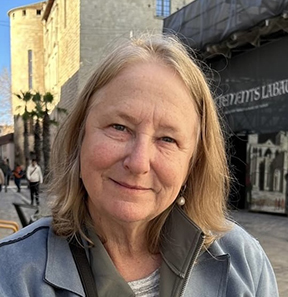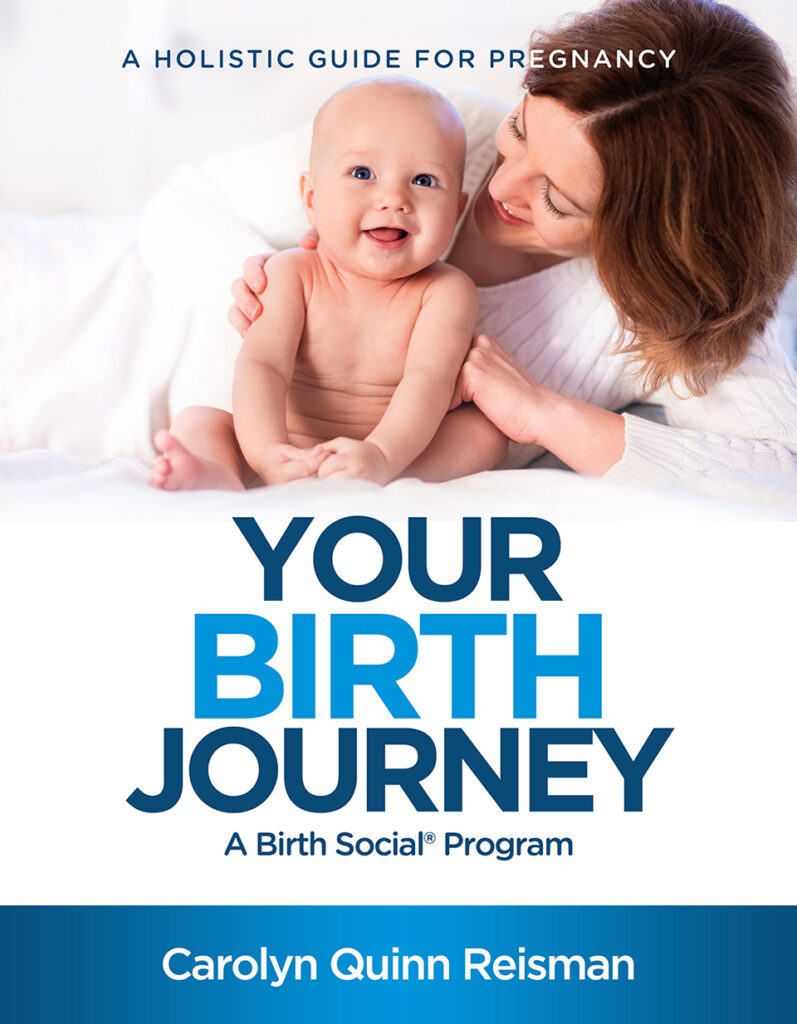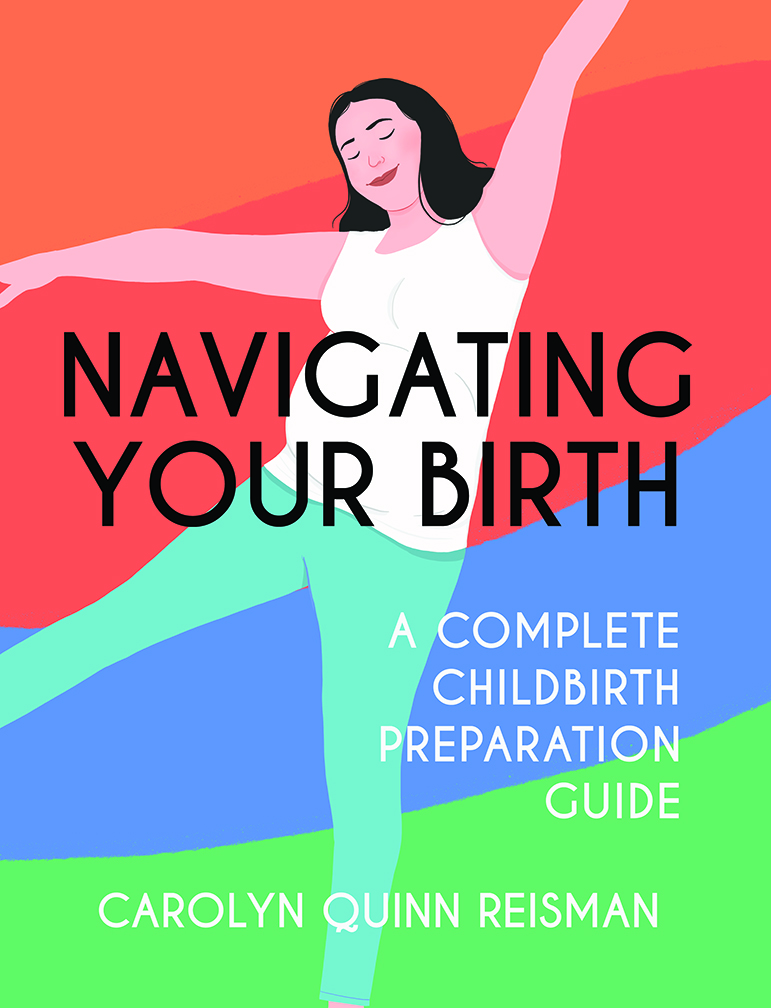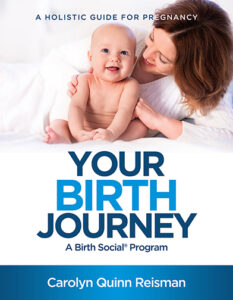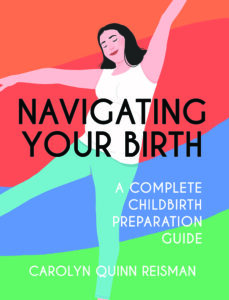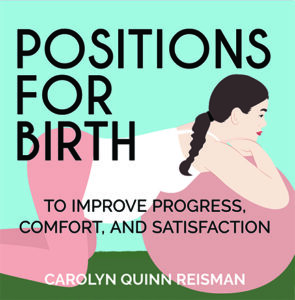Our cultural thinking is dominated by idealism, and on your birth journey, you will hear mothers and midwives say, “trust birth,“ that our bodies know what to do. If that ideal is not reached – the mother fails – shame on her.
Birth is a natural process and is part of the natural forces of nature. It is powerful, and we need to respect that power. I respect birth, and I am in awe of it, but I do not trust birth. Many midwives may be reluctant to say that out loud, as “trust birth” is part of our cultural rhetoric. When you trust birth, you are trusting what nature hands out. When you respect birth, you are working in unison with nature and learning as much as possible about the powerful process that drives birth.
Trust
Trust is often misunderstood. What we are told is that we should trust our instincts. Technically, our instincts are based on knowledge and experience, a perceptual framework that processes information through rational thinking and gut feelings. When we solely trust our gut, it is quick, subconscious, and without analysis. However, there is no “magical feeling” that makes something inherently safe. And, our gut feelings can sometimes be wrong.
It is natural for humans to rely on instinctive conclusions rather than analyzing the situation. Emotions often take precedence over logic when making decisions. However, when we add rational thinking to trust, it becomes more reliable. We draw on our life experiences, knowledge, and skills. Logic, however, does not come naturally. It must be trained, like a muscle.
Trust is also something we learn to accept as a concept outside of ourselves. The general agreement is that it requires faith and hope in something or someone. We are hardwired from birth to trust and to make connections. It is our default position. We trust mindlessly, reflexively, and somewhat routinely across a broad range of situations, whether it is in a provider, our friends, or God. It’s not entirely irrational that we are biased to trust, as things seldom go catastrophically wrong when we trust. When we trust, we can let our guard down. We stop paying attention. We surrender. Giving birth needs that. It helps the oxytocin flow.
Oxytocin
Two happy hormones released during the birth process include oxytocin and endorphins. Both are positively enhanced through exercise, love making, laughter, cuddling, massage, meditation, music, and feelings of love, safety, and privacy. As you can imagine, guarding these hormones should be a priority.
Oxytocin is the ‘love’ hormone because it is involved with lovemaking, fertility, and breastfeeding. Those ‘feel-good’ moments shared among friends are also a result of oxytocin. Michel Odent, a French obstetrician and childbirth specialist, suggests that oxytocin plays the part of ‘forgetting oneself.’ Oxytocin is also a potent hormone responsible for uterine contractions. It releases itself rhythmically, pulsing more frequently as labor progresses.
Oxytocin begins before pregnancy, continues during birth, travels throughout the entire body, and triggers a full range of physiological functions and emotions: happiness, attraction, love, and affection. The hormonal goodness of oxytocin is especially important to your pregnancy and birth – and your peace of mind. This love hormone helps you relax and helps labor begin.
Oxytocin Has Conditions
Oxytocin is funny like that. In order for the “love” hormone to work effectively, it requires a mother to guard her privacy during birth, which is one reason it is so important to be selective about your birth team. That is our logic coming into play.
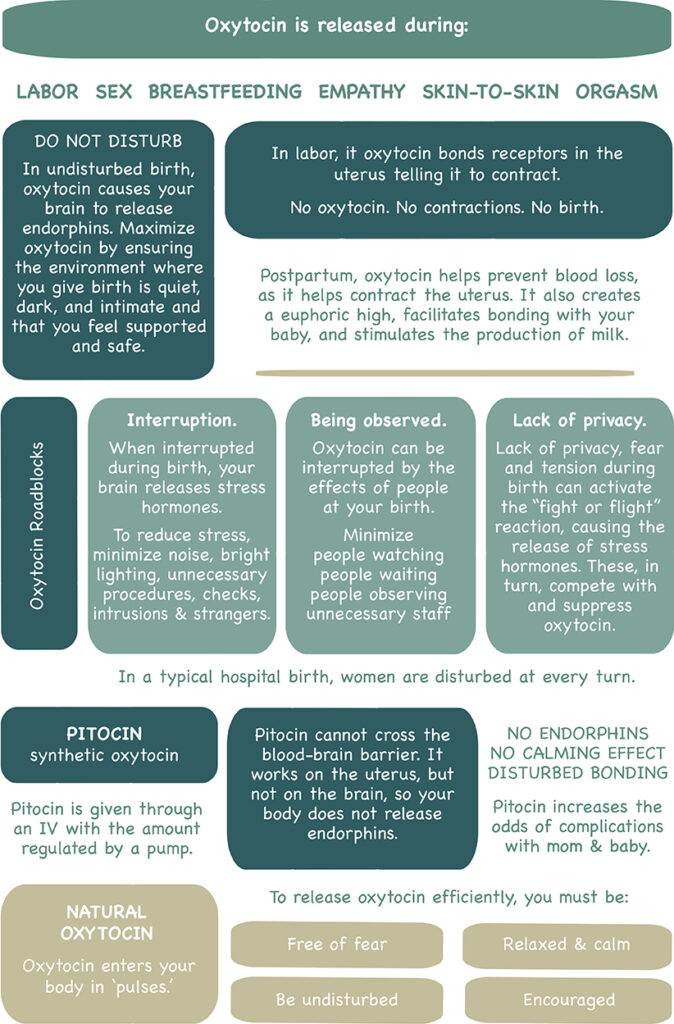
Respect
Respect is different than trust. When we respect something, we acknowledge its power and strength, such as the force of nature, the wind, or the power of the sea. They hold beauty that we seek in search of connection, serenity, inspiration, and much more. As with trust, things seldom go catastrophically wrong. Yet we are aware of the terror nature can unleash, such as a sudden storm, a lightning strike, or a hurricane. That doesn’t stop us from hiking in the mountains, camping, sailing across seas, or birthing babies. But, unlike trust, we purposely pay attention, make adjustments, and monitor the situation.
Respect is About Planning
When we take the idea of trusting birth and add the concept of respect – we are working with the idea that nature, autonomy, education, and choice also play a part in the birth process.
Nothing is more sacrosanct in our culture than the principle of choice. Midwives believe that the client’s choice and body autonomy should be honored and respected. To make an informed choice, you have to have all the information you need to decide the risks and benefits of any such choice you make during pregnancy and birth. It is in the best interest for families to make choices alongside the midwife in shared decision-making.
The Seas Can Be High
At the time of creating this blog, we lived on a boat and crossed oceans. It required us to be in awe and respect the forces of nature. And we did: enough to educate ourselves on all aspects of living on the water in all circumstances. The powerful forces of creation and destruction are part of the universe’s dance, and those forces don’t care about any particular individual. We love the ocean, but we do not trust it. We respect the powerful forces of the sea and wind, and we trust in ourselves.
As newbies to the sailing world, we hunkered down to learn everything we could about living on the sea. We had already taken five years of lessons, but now we had control over our own vessel. Huge. I immediately discovered that trusting the sea had no place in sailing. I had to route every step down to the weather, sea conditions, and tides. I got help from a marine weatherman. I loved him!
As you know, plans do not always work out, even if the weatherman says to expect sunny skies. You can understand this by arranging an event. You expect sunshine. You get rain. It’s the same with sailing. Our windows for travel were narrowed down to weather reports and sea conditions. We set sail when it was safe. We set anchor when it was not safe. We would not just “trust” that everything would work out. We would trust our ability to read the weather, seek advice, and weather the conditions if they got rough.
Respecting the sea was a high priority. We have been in 14-foot waves for 24 hours straight, sea conditions that would take most people’s breath away. That takes exceptional respect, knowledge, and going with the flow. It also took an amazing amount of trust in ourselves, our abilities, and our instincts. Fear had no room. We had to weather the storm with our hearts, skills, and an ability to keep going.
Your navigation on your birth journey is essential, but know that you cannot control every aspect of your birth. Nature does not work that way. Planning is crucial, but knowing how to make decisions and also going with the flow when things get rough is equally important. Trusting your knowledge, preparation, birth team, careful planning, and yourself is the best you can do. It has nothing to do with birth as a natural process that should always work out. Most of the time, it does. On occasion, we must weather the storm. Be prepared. Plan carefully. Let go.
